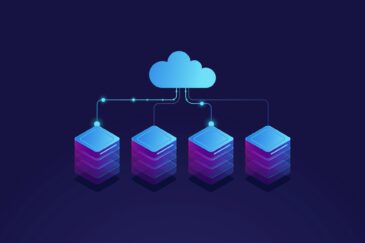Oracle HCM Cloud vs. Oracle HRMS – Key Differences

- April 18, 2024
- Mohammed Nadeem Uddin
- 0
Oracle HRMS and Oracle HCM Cloud are robust HR management solutions with unique strengths. Oracle HCM Cloud stands out with its cloud-based deployment, modern user experience, and advanced features that boost workforce productivity. On the other hand, Oracle HRMS excels in providing complete control over the system, ensuring compliance with labor laws, and managing the entire employee lifecycle.
Oracle HRMS
Key features
-
- Core HR: Employee data management, organizational structure, job and position management.
- Payroll: Calculating and processing employee salaries, wages, taxes, and deductions.
- Benefits Administration: Management of worker benefits such as health insurance, retirement plans, and leave policies.
- Recruitment and Onboarding: Job posting, candidate sourcing, applicant tracking, and new employee onboarding processes.
- Performance Management: Setting goals, conducting performance evaluations, and providing employee feedback.
- Learning and Development: Training programs, skills development, and career planning initiatives.
- Regulatory Compliance: Ensuring compliance with labor laws, regulations, and industry standards.
Oracle HCM Cloud
Key features
- Unified HR Platform: A single, integrated platform for managing all HR processes and activities.
- Talent Acquisition: Recruitment, candidate sourcing, applicant tracking, and hiring processes.
- Talent Management: Performance management, goal setting, succession planning, and career development.
- Workforce Management: Time and attendance tracking, scheduling, and workforce optimization.
- Employee Engagement: Tools for fostering employee engagement, collaboration, and communication.
- Analytics and Reporting: Advanced analytics and reporting capabilities for gaining insights into workforce trends, performance metrics, and HR KPIs.
- Mobile Access: Mobile-friendly interfaces and applications for accessing HR information and performing tasks on the go.
Oracle HCM Cloud vs. Oracle HRMS
Deployment Model
Oracle HRMS is an on-premise solution installed and maintained by the organization on its servers within its physical premises. While this provides complete control over the system, it also requires significant IT infrastructure and resources for installation, maintenance, and upgrades, which can be a potential drawback.
Oracle HCM Cloud is a cloud-based solution that offers significant advantages. It’s hosted and managed by Oracle on its servers and accessible to users via the Internet. This eliminates the need for organizations to handle hardware and software infrastructure, providing easier access, scalability, and reduced IT overhead.
Updates and Maintenance
The organization’s IT department usually manages updates and maintenance for Oracle HRMS. This may involve manually applying patches, updates, and fixes, which can sometimes lead to downtime and require careful planning to avoid disruptions to HR operations.
Oracle manages updates and maintenance for Oracle HCM Cloud. This means that Oracle automatically applies updates and patches as they become available, often without requiring any action from the organization. Updates are usually deployed automatically, reducing downtime and guaranteeing that the system always runs with the newest security patches and features.
Scalability
The organization’s own IT infrastructure may limit Oracle HRMS scalability. Adding more users or expanding the system’s capabilities may require investing in additional hardware, software licenses, and resources to accommodate growth.
Cloud-based HCM solutions like Oracle HCM Cloud offer scalability advantages. Organizations may quickly scale up or down without worrying about hardware constraints in response to their changing demands.. The cloud infrastructure can dynamically adjust to accommodate fluctuations in user numbers or processing demands, providing greater flexibility and agility.
Cost Structure
Oracle HRMS involves upfront software licenses, implementation, and hardware infrastructure costs. Ongoing costs include maintenance, support, and upgrades, which may vary depending on the organization’s IT capabilities and requirements.
Oracle HCM Cloud follows a subscription-based pricing model, where organizations pay a recurring fee for using the software. This subscription fee often includes maintenance, updates, and support services, providing a more predictable cost structure. While upfront costs may be lower, organizations should consider the long-term expenses associated with ongoing subscriptions.User Experience
Older versions of Oracle HRMS software have a more traditional or dated user interface and user experience. Navigating the system and accessing functionalities may require more training or familiarity with the software.
Oracle HCM Cloud is designed with modern user interfaces and user experience principles. The interface is visually appealing, intuitive, and user-friendly, making it easier for employees and HR professionals to use the system. This user-friendly interface ensures a smooth transition and shortens the learning curve for new users, making them feel comfortable and at ease with the system.
Integration and Extensibility
Integrating Oracle HRMS with other systems may require custom development work and can be complex, depending on the organization’s IT architecture and the systems being integrated. The software’s architecture and customization options may limit its extensibility.
Oracle HCM Cloud integration is relatively more straightforward. It comes with pre-built integrations and APIs for connecting with other systems, such as ERP systems, payroll software, or third-party applications. This facilitates smoother integration and data exchange between systems, reducing the need for custom development and enhancing extensibility.Functionality
Oracle HRMS offers core HR functionalities such as employee data management, payroll, benefits administration, and attendance tracking. However, it may need some of the more advanced features available in cloud-based solutions like Oracle HCM Cloud, such as advanced analytics, AI-driven insights, and comprehensive talent management capabilities.
Oracle HCM Cloud stands out with its comprehensive talent management functionalities. It offers broader features beyond core HR, including advanced workforce planning and decision-making analytics, AI-driven insights for predictive analytics and recommendations, and comprehensive talent management. These features empower organizations to attract, develop, and retain top talent, instilling confidence in their ability to build a strong workforce.
Compliance
Oracle HRMS and HCM Cloud will likely offer compliance features to help organizations adhere to labor laws, regulations, and industry standards. However, Oracle HCM Cloud may have an advantage due to its cloud-based nature and continuous update cycle. Updates and enhancements can be more easily rolled out to ensure the system complies with changing regulations and requirements.
The differences between Oracle HRMS and Oracle HCM Cloud present considerations for businesses in managing their human resources effectively. While Oracle HRMS offers robust capabilities for core HR functions and may suit organizations with established on-premises infrastructure, Oracle HCM Cloud stands out with its modern cloud-based architecture, user-friendly interfaces, and comprehensive talent management, analytics, and scalability features. For businesses prioritizing agility, accessibility, and advanced functionalities, Oracle HCM Cloud provides a compelling solution, enabling them to adapt to changing HR needs, drive employee engagement, and make data-driven decisions for long-term growth. On the other hand, organizations with specific preferences for on-premises deployment may find Oracle HRMS a suitable choice. Ultimately, businesses should carefully evaluate their priorities, IT infrastructure, and growth strategies to determine which solution best aligns with their HR objectives and overall business goals.

Services
Products
Company
Copyright © 2024 Rite Software Solutions & Services LLC. All rights reserved.



